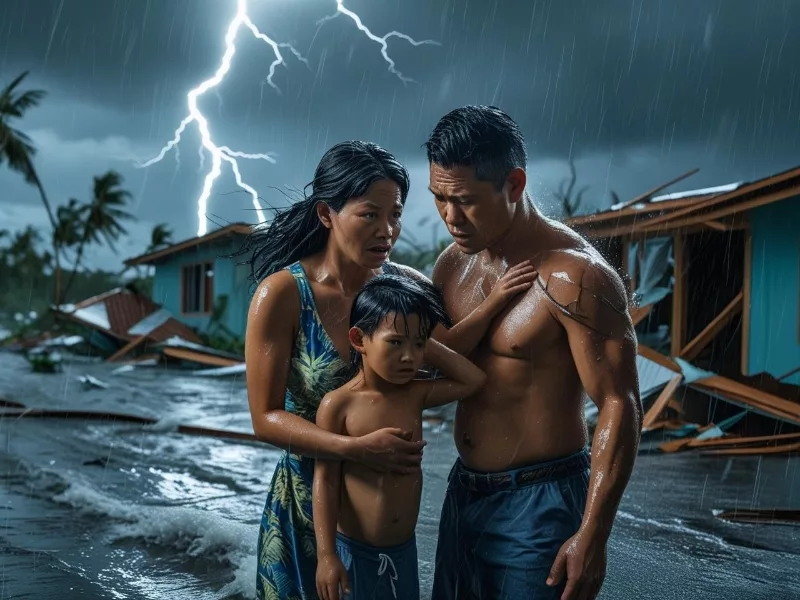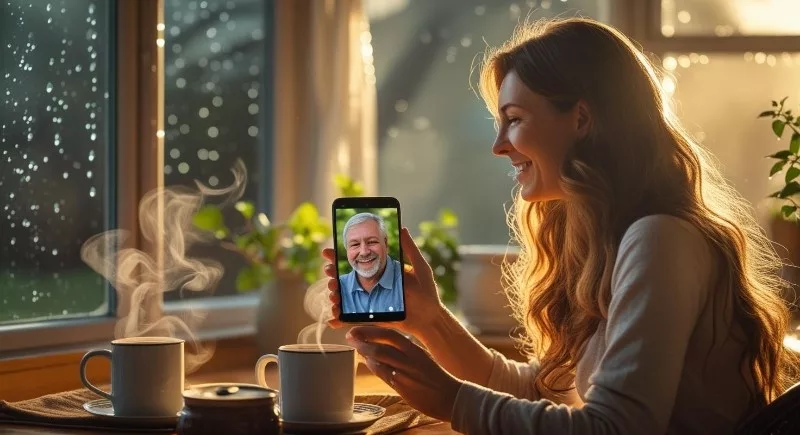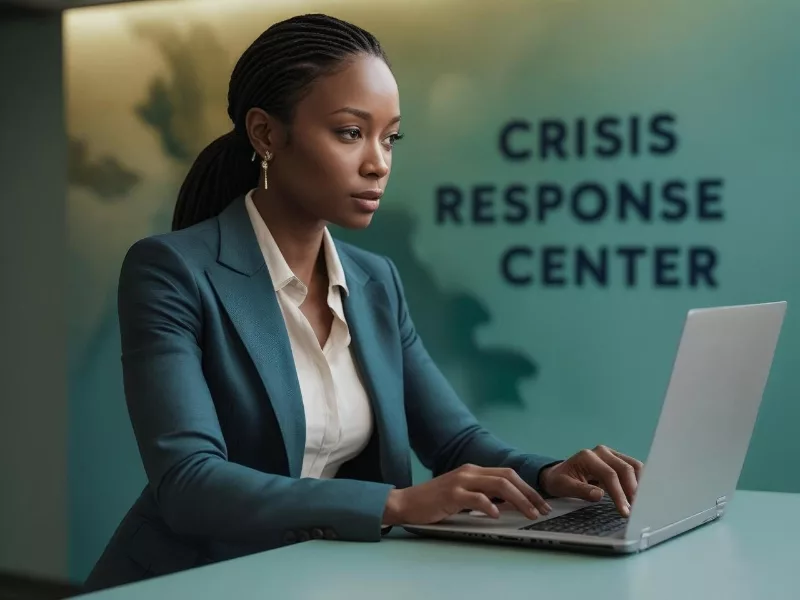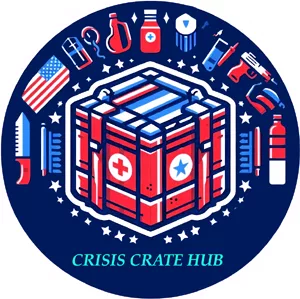Table of Contents

Family Panicked and Stressed as a Storm Destroyed Their Home
When the unexpected hits, like those wild hurricanes or unpredictable earthquakes, emotions can run wild. Having a rollercoaster of feelings, including fear, anxiety, and sadness, is pretty standard during such times. They’re like unwanted guests who just show up without an invitation, leaving you feeling all sorts of ways and sometimes quite overwhelmed.
These strong emotions aren’t just occurring in your head—they go full-on physical, affecting sleep, appetite, and energy levels. Acknowledging these feelings can be the first step toward getting things back on track. Speaking with loved ones or even jotting down these emotions can support in facing them head-on instead of pushing them into the corner.
Own your emotions without any guilt. It’s about empathy for oneself as much as anyone else. When you get why you’re feeling a certain way, it opens the path to managing them. That’s a major step to regaining some sense of control during those chaotic times.
Moving past the emotional aftermath of a disaster isn’t a solo act. There are stories out there, raw and relatable, from those who’ve been through it and come out stronger. Reading or hearing these experiences can lend some hope and motivation that yes, it’s possible to get through this.
Building a Resilient Mindset
Facing down a disaster is no joke. Keeping your mental game strong is about more than just gritting your teeth and getting through it. It’s about resilience, which means bouncing back even when the odds seem stacked against you.
Resilience isn’t something you’re born with; you build it just like you’d build muscles at the gym. Start by embracing mindfulness—being present and calm even in the whirlwind moments. It’s like hitting the pause button on life’s chaos.
Positive thinking can be another game-changer. It’s not about ignoring the bad stuff, but about finding that sliver of good, focusing on what can still go right. This shift in perspective can sometimes make all the difference when things go sideways.
Adaptability is a secret weapon of resilient folks. When change is the only constant, being able to pivot and roll with it can keep your world from spinning out entirely.

Sometimes, when times get tough, your crew or family or friends can make all the difference. Build solid relationships centered around mutual support. These connections can act as lifelines, providing the encouragement needed when you’re on the brink of throwing in the towel.
Experts like psychologists remind us that resilience isn’t just individual. A supportive community—neighborhood groups, friends, or family—can hold you up. They provide the strength that sometimes feels like it’s in short supply.
Practical Tips for Managing Stress During a Crisis
In the middle of a crisis, stress can sneak up like a storm cloud, turning everyday challenges into monumental tasks. Recognizing the signs is key—those knots in your stomach, constant worry, or feeling drained all the time. Spot them, and you’re already on the way to taming them.
Handling stress isn’t one-size-fits-all, but there’s plenty in the toolbox to try out. Deep breathing exercises are a fantastic start. Sounds simple, but focusing on each breath in and out can bring surprising calm amidst chaos.

Hobbies For Managing Stress
Diving into hobbies or meaningful activities can distract from the stress of the moment. Whether it’s painting, gardening, or cooking up a storm, find what relaxes you and go with it.
Getting your body moving with a short walk or a quick home workout can kick stress to the curb, too. The endorphins released can lift your mood faster than you’d imagine.
Setting up a personal crisis management plan can also help regain some control. Know who to reach out to, resources to tap into, and any go-to strategies that work for you in tough times.
Leveraging Technology and Resources for Crisis Support
In today’s digital age, having a smartphone or computer can be like holding a lifeline when a disaster strikes. Technology not only keeps you looped in with updates, but it also helps you to reach out to those who matter when meeting face to face is not an option.

Online platforms brim with resources crafted for mental wellness. From meditation apps planting seeds of calm to forums offering shared experiences, there’s something out there for everyone. These tools provide relief and connection, which are invaluable when you’re on your own and things get rough.
For those living in remote areas, where support services can be scarce, technology bridges the gap. Connecting folks to remote counseling services or disaster response apps makes crucial help more accessible than ever.
Real-life stories show just how much of a game-changer technology can be. Case studies remind us of cities that have rebounded stronger after disasters, thanks to tech innovations, enabling communication and support at peak efficiency.
Empowering yourself with these tools means being better prepared the next time disaster strikes. It’s about having options, building bridges over troubled waters, and knowing that a support network is just a tap or click away.

This article beautifully captures the emotional and psychological impact of disasters while providing practical guidance for navigating tough times. It highlights the importance of acknowledging emotions, fostering resilience, and leveraging technology for support. The emphasis on community, adaptability, and mindfulness powerfully reminds readers that strength is built through connection and self-awareness. The actionable steps for managing stress make it an empowering read, offering both comfort and motivation in times of crisis.
I Have Some Mindful Questions:
How can embracing mindfulness help in navigating emotional turbulence during a crisis?
What are some personal strategies you use to build resilience in challenging times?
In what ways can community support strengthen an individual’s ability to cope with disasters?
How has technology positively impacted disaster response and emotional well-being in recent times?
What small, daily habits can contribute to a more resilient mindset before a crisis even occurs?
Hi Iris!
Thank you for your questions. I’ll do my best to answer them.
1) How can embracing mindfulness help in navigating emotional turbulence during a crisis?
It’s always a good idea to be aware of your immediate surroundings whenever possible. I always try to get my bearings before heading to any location via either satellite, gps., etc. It does help.
2) What are some personal strategies you use to build resilience in challenging times?
I have a tendency to take cues from people I’m around locally. You have to, however, be careful when there are too many people as a “crowd mentality” can make or break a mindset.
3) In what ways can community support strengthen an individual’s ability to cope with disasters?
This is a great question! As I mentioned above there can be a “crowd mentality” or your general “community mentality”. It just takes one person in a group of panicking people to lead the way to calmness before one at a time, or even sometimes a few people at a time , start following the same calmness when they realize that the calmer person is actually solving the immediate threat. There is a certain quality to the old adage “strength in numbers”.
4) How has technology positively impacted disaster response and emotional well-being in recent times?
I would say that technology has given us so many types of advanced warning methods, anywhere from radar, to satellite apps, to detection apps. The more knowledge we can gain in advance , the more prepared we as communities and individuals alike, such as first responders, hospitals, and just people in general can be.
5) What small, daily habits can contribute to a more resilient mindset before a crisis even occurs?
I believe it may be different for everyone, but for me personally I have a calming/relaxing ritual I perform daily, (just for stress relief in general) , I like to listen to brain and chakra frequencies. It helps a lot. there is also the art of practicing your emergency plans with the people you care about. Practice brings a certain peace of mind.
I hope I was able to answer your questions as thoughtfully as you asked them. Thank You!
Thank you for this insightful article! It really captures the emotional rollercoaster that follows a disaster and how crucial it is to build resilience. I’m curious—how do you recommend balancing acknowledging difficult emotions with staying optimistic without feeling like you’re forcing positivity? Also, are there specific mindfulness practices or apps you’d suggest for beginners trying to stay grounded during tough times? Looking forward to your thoughts!
I have actually been through many “crisis situations” in my lifetime and what I can tell you is that when you “know” something is coming, or will happen eventually ahead of time, a lot times you have time to prepare emotionally as well as perhaps long-term. When I was growing up I had been used to earthquakes in California, had moved to Idaho and experienced two forest fires, and as well as seeing the eruption of Mt. St. Helens in Washington, and later as an adult experienced a rip tide when I was 30. So I guess you could say I’ve been through a lot in my life, but yes, mostly you know what potential risks an area will hold. So I would say except for the rip tide it was pretty much all the locals would plan ahead taking a lot of the stress out. I hope this answers your question.